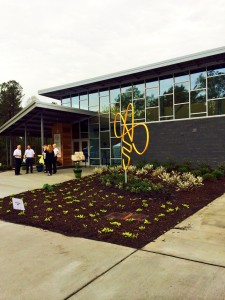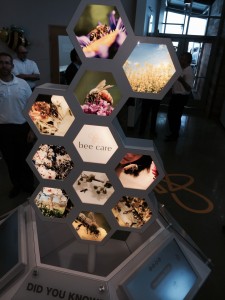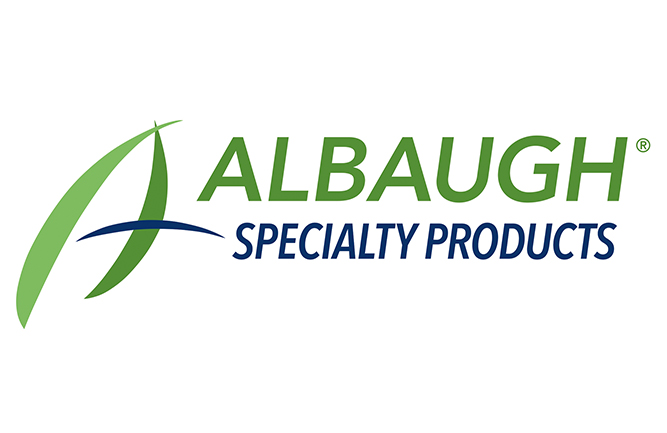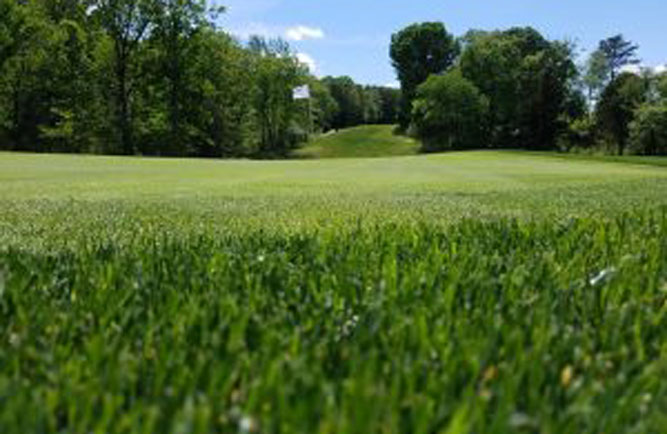Bayer expands honeybee research with new facility
The grand opening of Bayer CropScience’s North American Bee Care Center was all the buzz in Research Triangle Park, N.C., April 15.
In celebration, Bayer held a ribbon-cutting ceremony and offered the media a tour of the $2.4 million center.
The 6,000-square-foot facility, which is targeting a Leadership in Energy & Environment Design (LEED) silver certification, is Bayer’s second bee care center to be constructed, with the first located at the joint global headquarters campus of Bayer CropScience and Bayer Animal Health in Monheim, Germany. Its purpose is to promote improved honeybee health by acting as an educational resource and research hub for stewardship measures and best management practices.
“Honeybees are essential to modern agriculture production, and our North American Bee Care Center will help facilitate the research needed to help honeybees meet the increasing global demand for crop pollination,” said Jim Blome, president and CEO of Bayer CropScience, who gave the opening remarks at the ceremony and also cut the ribbon to the center, marking its official opening. “Healthy honeybees mean a more substantial and nutritious food supply for us all, and we understand the many complex issues affecting honeybees’ ability to thrive, including disease, parasites such as Varroa mites, genetics and more.”
The North Carolina Bee Care Center is the second to be constructed by Bayer, with the first located in Monheim, Germany.
The facility houses a full laboratory with a teaching and research apiary, honey extraction and hive maintenance space; interactive learning center; office space; and meeting, training and presentation facilities.
It’s surrounded by more than two acres of outdoor space, which is filling in with pollinator-attractive plants for bees to feed on. There are three beehives on-site at this time. The facility has the capacity to house 10 hives.
Becky Langer, manager for the North American Bayer Bee Care Program, said more hives will be added as additional forage grows into the property.
Part of the company’s $12 million investment in bee health in 2014, the center aims to develop products and technology to control parasitic mites in honeybee hives, help manage a healthy bees program and assess the safety of crop protection products to bees. Other activities conducted on-site include a sentinel hive monitoring program, varroa gate testing and development, Varroa resistance monitoring and varroacide screening.
Entomologists, apiarists, graduate researchers and others head the research efforts, and at the forefront of them all is David Fischer, Ph.D., and manager for the North American Bee Care Center.
Urban and landscape-specific research yet to come
While the research focus has been on agriculture so far, Fischer said there are projects in the works that cater more toward honeybees in urban settings—a topic that relates closer to the Green Industry and landscape professionals.
“In some of these urban settings the bees can thrive,” he said. “There’s a lot of ornamental plantings; there’s a lot of food for them.”Specifically, the center has its sights set on pesticides and like products that can harm honeybees. One study that’s underway involves monitoring beehives and testing the pollen bees bring back to those. Hives have apparatuses fashioned around them that knock the pollen off bees’ legs which researchers then collect and analyze to determine if any pesticide residue was in it and from what plant or forage.
“Most of the studies indicate the residues are low and not of concern,” Fischer said. “That’s one of the things we want to get some data on because there’s not a lot of data.”
Further research related to the Green Industry, Fischer said, will come out of the center’s relationship with Daniel Potter, Ph.D., of the University of Kentucky. He specializes in urban landscape entomology.
Moreover, research coming from the North American Bee Care Center will coincide with what’s being conducted at the Eastern Bee Care Technology Station in Clayton, N.C., said Mark Schneid, chief marketing officer for Bayer’s global turf and ornamental division. There are more turf and ornamental plots located there that bees forage on, he said.
“We’re learning about all the stresses on the bees; it is a complex issue,” Schneid said. Bayer also is testing the effects its products have on pollinators.
Schneid said that pesticide testing goes in-hand with the company’s move to retitle some of its employees to “bee ambassadors” so they may engage with customers about bee health and safe pesticide practices.
His topmost advice on that topic: Always follow the label directions.
The Bee Care Center’s role in that conversation, he said, is it will help the company continue developing “sustainable solutions to sustain the industry.”
“We know we can’t do without pollinators,” Schneid said, “but we also know that having those great environments customers want can’t be had without plant protection products.”
Photos: Sarah Pfledderer/Landscape Management









![photo 3[1] Photo: Sarah Pfledderer/Landscape Management](https://www.golfdom.com/wp-content/uploads/2014/04/photo-31-225x300.jpg)




